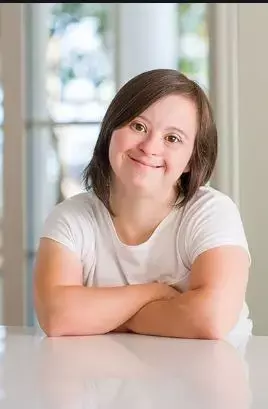- Home
- Medical news & Guidelines
- Anesthesiology
- Cardiology and CTVS
- Critical Care
- Dentistry
- Dermatology
- Diabetes and Endocrinology
- ENT
- Gastroenterology
- Medicine
- Nephrology
- Neurology
- Obstretics-Gynaecology
- Oncology
- Ophthalmology
- Orthopaedics
- Pediatrics-Neonatology
- Psychiatry
- Pulmonology
- Radiology
- Surgery
- Urology
- Laboratory Medicine
- Diet
- Nursing
- Paramedical
- Physiotherapy
- Health news
- Fact Check
- Bone Health Fact Check
- Brain Health Fact Check
- Cancer Related Fact Check
- Child Care Fact Check
- Dental and oral health fact check
- Diabetes and metabolic health fact check
- Diet and Nutrition Fact Check
- Eye and ENT Care Fact Check
- Fitness fact check
- Gut health fact check
- Heart health fact check
- Kidney health fact check
- Medical education fact check
- Men's health fact check
- Respiratory fact check
- Skin and hair care fact check
- Vaccine and Immunization fact check
- Women's health fact check
- AYUSH
- State News
- Andaman and Nicobar Islands
- Andhra Pradesh
- Arunachal Pradesh
- Assam
- Bihar
- Chandigarh
- Chattisgarh
- Dadra and Nagar Haveli
- Daman and Diu
- Delhi
- Goa
- Gujarat
- Haryana
- Himachal Pradesh
- Jammu & Kashmir
- Jharkhand
- Karnataka
- Kerala
- Ladakh
- Lakshadweep
- Madhya Pradesh
- Maharashtra
- Manipur
- Meghalaya
- Mizoram
- Nagaland
- Odisha
- Puducherry
- Punjab
- Rajasthan
- Sikkim
- Tamil Nadu
- Telangana
- Tripura
- Uttar Pradesh
- Uttrakhand
- West Bengal
- Medical Education
- Industry
Medical Care for Adults with Down Syndrome: Guidelines by Global Down Syndrome Foundation

A working group for the Global Down Syndrome Foundation has issued the first evidence-based clinical practice guidelines on the medical care of adults with Down syndrome.The guidelines have been published in the Journal of American Medical Association.
Down syndrome is the most common chromosomal condition, and average life expectancy has increased substantially, from 25 years in 1983 to 60 years in 2020. Despite the unique clinical comorbidities among adults with Down syndrome, there are no clinical guidelines for the care of these patients.
To develop an evidence-based clinical practice guideline for adults with Down syndrome, the expert panel developed 10 Population/Intervention/ Comparison/ Outcome (PICO) questions addressing multiple clinical areas including mental health (2 questions), dementia, screening or treatment of diabetes, cardiovascular disease, obesity, osteoporosis, atlantoaxial instability, thyroid disease, and celiac disease.
From 11 295 literature citations associated with 10 PICO questions, 20 relevant studies were identified. An updated search identified 2 additional studies, for a total of 22 included studies (3 systematic reviews, 19 primary studies), which were reviewed and synthesized. Based on this analysis, 14 recommendations and 4 statements of good practice were developed.
The guidelines, published in JAMA, include 14 recommendations and 4 statements of good practice. Just one recommendation is considered "strong": Clinicians should screen adults with Down syndrome for Alzheimer-type dementia every year beginning at age 40.
The guideline authors also note that the average life expectancy for people with Down's has increased from 25 years in 1983 to 60 years in 2020.
Among the "weak" recommendations: Screening for type 2 diabetes should begin at age 30 and be repeated every 3 years. For those who are obese, such screening should begin at age 21 and be repeated every 2 to 3 years.
Two other recommendations for diabetes screening recommend earlier initiation of screening and at shorter intervals given the high prevalence and earlier onset in adults with Down syndrome.
Several of the recommendations — including those for preventing stroke and deciding on statin therapy — align with recommendations for adults without Down syndrome.
For full article follow the link: 10.1001/jama.2020.17024
Primary source: JAMA
Dr Satabdi Saha (BDS, MDS) is a practicing pediatric dentist with a keen interest in new medical researches and updates. She has completed her BDS from North Bengal Dental College ,Darjeeling. Then she went on to secure an ALL INDIA NEET PG rank and completed her MDS from the first dental college in the country – Dr R. Ahmed Dental College and Hospital. She is currently attached to The Marwari Relief Society Hospital as a consultant along with private practice of 2 years. She has published scientific papers in national and international journals. Her strong passion of sharing knowledge with the medical fraternity has motivated her to be a part of Medical Dialogues.
Dr Kamal Kant Kohli-MBBS, DTCD- a chest specialist with more than 30 years of practice and a flair for writing clinical articles, Dr Kamal Kant Kohli joined Medical Dialogues as a Chief Editor of Medical News. Besides writing articles, as an editor, he proofreads and verifies all the medical content published on Medical Dialogues including those coming from journals, studies,medical conferences,guidelines etc. Email: drkohli@medicaldialogues.in. Contact no. 011-43720751


